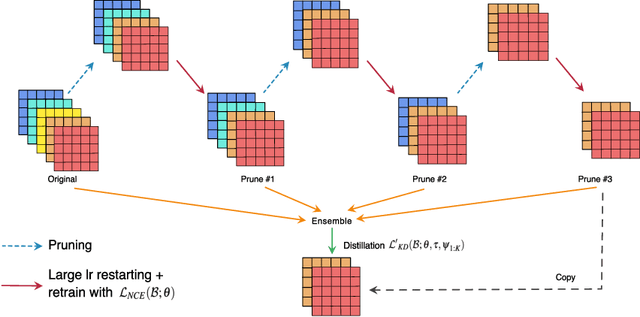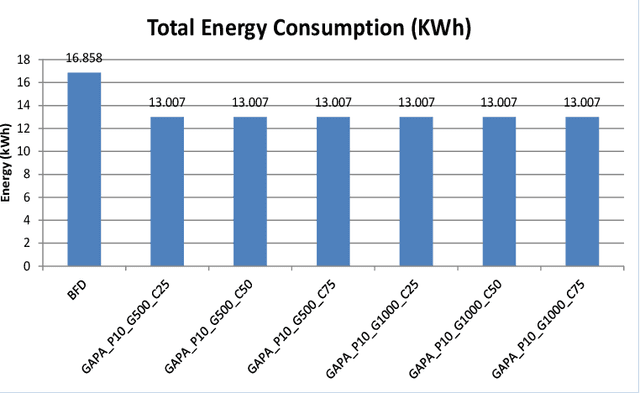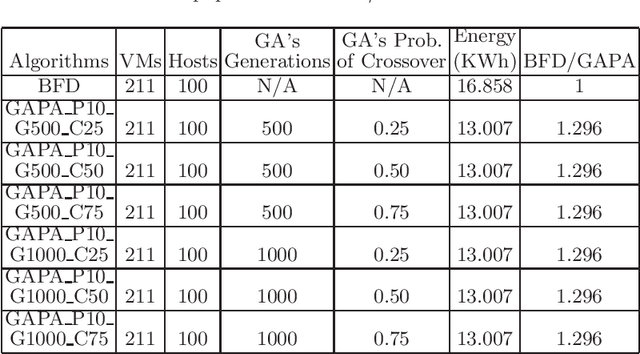Nam Thoai
Paying more attention to snapshots of Iterative Pruning: Improving Model Compression via Ensemble Distillation
Jun 20, 2020



Abstract:Network pruning is one of the most dominant methods for reducing the heavy inference cost of deep neural networks. Existing methods often iteratively prune networks to attain high compression ratio without incurring significant loss in performance. However, we argue that conventional methods for retraining pruned networks (i.e., using small, fixed learning rate) are inadequate as they completely ignore the benefits from snapshots of iterative pruning. In this work, we show that strong ensembles can be constructed from snapshots of iterative pruning, which achieve competitive performance and vary in network structure. Furthermore, we present simple, general and effective pipeline that generates strong ensembles of networks during pruning with large learning rate restarting, and utilizes knowledge distillation with those ensembles to improve the predictive power of compact models. In standard image classification benchmarks such as CIFAR and Tiny-Imagenet, we advance state-of-the-art pruning ratio of structured pruning by integrating simple l1-norm filters pruning into our pipeline. Specifically, we reduce 75-80% of total parameters and 65-70% MACs of numerous variants of ResNet architectures while having comparable or better performance than that of original networks. Code associate with this paper is made publicly available at https://github.com/lehduong/ginp.
A Genetic Algorithm for Power-Aware Virtual Machine Allocation in Private Cloud
Feb 19, 2013



Abstract:Energy efficiency has become an important measurement of scheduling algorithm for private cloud. The challenge is trade-off between minimizing of energy consumption and satisfying Quality of Service (QoS) (e.g. performance or resource availability on time for reservation request). We consider resource needs in context of a private cloud system to provide resources for applications in teaching and researching. In which users request computing resources for laboratory classes at start times and non-interrupted duration in some hours in prior. Many previous works are based on migrating techniques to move online virtual machines (VMs) from low utilization hosts and turn these hosts off to reduce energy consumption. However, the techniques for migration of VMs could not use in our case. In this paper, a genetic algorithm for power-aware in scheduling of resource allocation (GAPA) has been proposed to solve the static virtual machine allocation problem (SVMAP). Due to limited resources (i.e. memory) for executing simulation, we created a workload that contains a sample of one-day timetable of lab hours in our university. We evaluate the GAPA and a baseline scheduling algorithm (BFD), which sorts list of virtual machines in start time (i.e. earliest start time first) and using best-fit decreasing (i.e. least increased power consumption) algorithm, for solving the same SVMAP. As a result, the GAPA algorithm obtains total energy consumption is lower than the baseline algorithm on simulated experimentation.
* 10 pages
 Add to Chrome
Add to Chrome Add to Firefox
Add to Firefox Add to Edge
Add to Edge